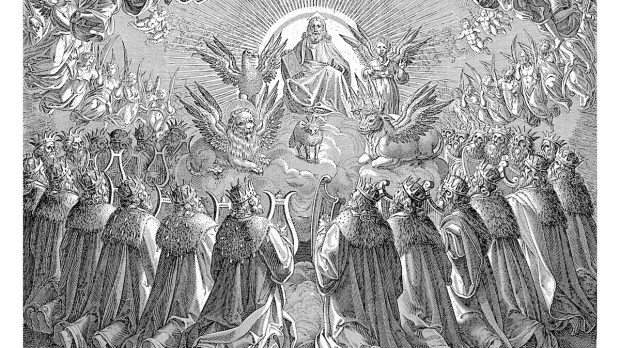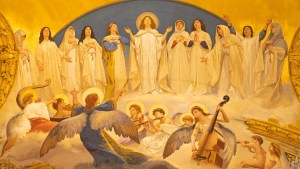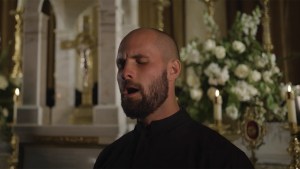In the world of music, there are few offerings that can compete with the raw beauty of sacred music. A liturgical music style meant to help the faithful better glorify God, sacred music is designed to reflect the majesty of the divine, with each song a hymn lifting prayers to the Lord in the language of the angels.
Today we’ll be examining the sounds of the cherubim, the powerful order of angels biblically described as the attendants of God. (Don’t confuse these glorious singers of endless praise with the plump putti or “baby angels” often decorating the heavenly realm in Renaissance paintings.)
Set to music by one of the most esteemed sacred music composers of 19th-century Russia, Grigory Lvovsky, “Cherubic Hymn” is one of the finest works of sacred chant from the Romantic period that we’ve ever heard. It is a liturgical work, with long held chords that creates a magnificent, prayerful soundscape. The ancient text is sung by the choir before Communion in the Byzantine liturgy; translated to English, it reads:
“Let us, who mystically represent the cherubim and sing the thrice-holy hymn to the life-giving Trinity, lay aside all worldly cares, that we may receive the King of all, invisibly escorted by the angelic hosts. Alleluia, alleluia, alleluia.”
This 2023 performance, by the 600-year-old Choir of the Sretensky Monastery, is as splendid as it could be.
These 21 male vocalists put on a show that any sacred choir would envy, with resonance so thick that we weren’t sure our speakers would hold out at first. The group pays special attention to dynamics (volume), beginning so softly that it almost sounds like a mixed choir, and ending with a rumbling strength only found in a male choir.
There are numerous recordings from this storied historic choir on the YouTube page of The Oktavism Channel, along with various sacred music offerings from many choirs. Of the Sretensky Monastery choir’s releases, one of our favorites is a collaboration with 14-year-old soloist Anastasia Gladilina, for a performance of “Kyrie Eleison” set to music by Georgian Orthodox Patriarch Ilia II.



